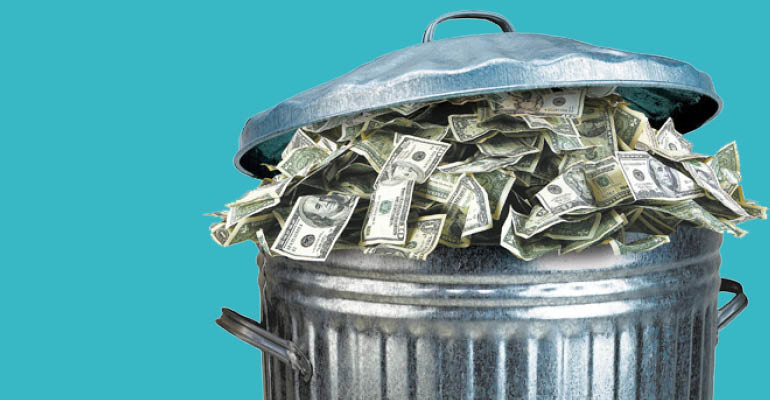What One Washington County Will Do with its New Waste Fee Increase
The new rate, which became effective Jan. 1, will fund more recycling options at transfer stations.

In King County, Wash., residents started the New Year with a higher trash bill. The county is increasing its solid waste fees by approximately 4 percent, which will amount to approximately 77 cents per household per month. It will help cover the rising costs of disposal, boost recycling rates and help fund the construction of two modern transfer stations.
Commercial haulers that collect solid waste at the curb and self-haulers using King County solid waste transfer stations will pay the new disposal fee. Commercial haulers, the county says, will most likely pass the increase on to their customers.
Currently, the basic fee for bringing solid waste to a King County solid waste facility, when tax and surcharge are included, will increase from $129.40 to $144.34 per ton, and the minimum fee will increase from $22 to $24.25.
A typical single-family curbside customer, putting out one can of garbage per week is likely to see an increase of 77 cents per month. The new rate applies to residents of King County, outside of the cities of Seattle and Milton, which are part of separate solid waste handling systems.
The new rate, which became effective Jan. 1, will fund more recycling options at transfer stations. The county hopes to recover 42,000 additional tons of recyclable materials each year. County residents and businesses recycle 54 percent of all solid waste generated, but according to the county, 70 percent of what is landfilled could have been reused, recycled or composted. The goals of King County’s Strategic Climate Action Plan (SCAP) outlines King County’s goal to recover and recycle 70 percent of waste materials by 2020.
King County is using the rate increase to pay for its eight transfer stations, two rural drop boxes and its landfill, says Doug Williams, media relations coordinator of King County Department of Natural Resources and Parks.
Additionally, the new fees support the county’s recycling programs including waste prevention and recycling grants to cities, schools, businesses and residents. Community cleanup work, management of closed landfills in the county, and the planning, engineering and financial services that support the solid waste system also will benefit from the increase, he says.
“I should note that we are in the process of completing construction on the Factoria Transfer Station (replacing the 1960s-era facility), and the pending construction of a new South County Transfer Station to replace the old Algona Transfer Station.”
The Factoria Transfer Station, in Bellevue, lacks several service needs, including room for collecting recyclable materials, minimum roof clearance needed by modern, larger garbage collection vehicles and the ability to compact waste. The new station is designed to meet current building and environmental standards and to accommodate projected future growth in the region. The Solid Waste Division’s 2006 Solid Waste Transfer and Waste Management Plan demonstrated the need for a major overhaul of the aging transfer system infrastructure. That plan, which was adopted by the King County Council, affirmed the need to replace the Factoria station.
The county’s solid waste plan also says the 53-year-old Algona Station has come to the end of its usefulness. According to the plan, it is outdated and should be replaced. The county is looking to replace the Algona Transfer Station with a new station in the south county area. At least two sites have been discussed, however the county has yet to determine where the new station will be located.
About the Author(s)
You May Also Like


